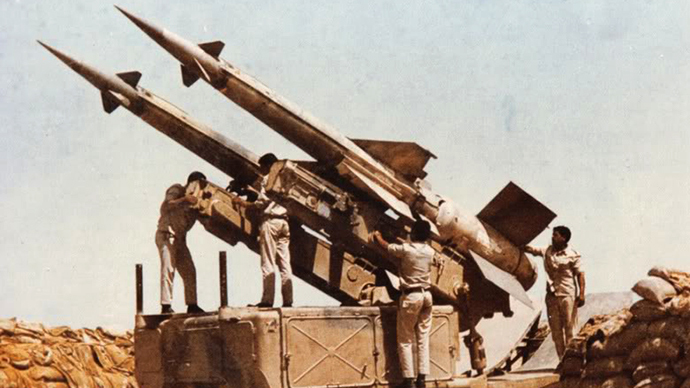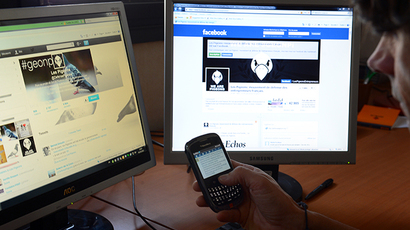Traders misread Israeli Army tweet about 40th anniversary of Yom Kippur war, cause spike in oil prices

A tweet by the Israel Defense Force claiming that it had started an attack on Syria caused a panic in the oil market – until traders realized the update was referring to events in the Yom Kippur war 40 years ago.
On Thursday at 10 a.m. US Eastern time, just as the markets were
warming up, the IDF posted the following tweet on its official
feed.
Oct. 10 #YomKippur73: Israel Air Force bombards airports in Syria to prevent Soviet weapons reaching the Syrian Army http://t.co/tKnMzYjgFF
— IDF (@IDFSpokesperson) October 10, 2013
As rumors of a new war in the oil-producing Middle East were
quickly passed between traders, brokers began buying oil, driving
the price up.
"The IDF tweet caused a bit of a stir in the oil market,"
Richard Mallinson, chief policy analyst at consultancy Energy
Aspects, confirmed to Reuters.
The morning’s trade graph shows a 10-minute spike, followed by an
instant correction, as red-faced traders began to rid of their
panic buys.
Oil traders often have to react instantly to breaking news, but a
bemused IDF was left trying to explain why a tweet containing
“YomKippur73” and “Soviet” – a term referring to a country that
broke up 22 years ago – should have confused the brightest minds
on Wall Street.
"Obviously this was part of our Yom Kippur Twitter series. The
facts are there and simple to read. It was apparent within the
Tweet itself," IDF spokesman Peter Lerner said.
The Yom Kippur War was a short but bloody conflict that started
when Syria and Egypt invaded Israel on the most holy day in the
Jewish calendar, in a bid to re-capture the Sinai Peninsula that
Egypt lost as a result of the Six-Day War back in 1967.
Engagements were quickly stopped by a ceasefire, and Sinai was
eventually returned to Egypt as a part of the Camp David accords.
All this information would have been easily available to any
traders who had the time to click on the link provided with the
tweet, which would take the reader to an in-depth retrospective
of the conflict.
The incident is reminiscent of the Associated Press Twitter feed
hacking back in April, in which pro-Assad activists Syrian
Electronic Army posted false news that President Barack Obama had
been injured in an explosion. More than $130 billion was
immediately wiped off the markets, according to the Financial
Times, causing worries about the vulnerability of leading
financial platforms to unconfirmed rumors, which could be used
for financial gain.














